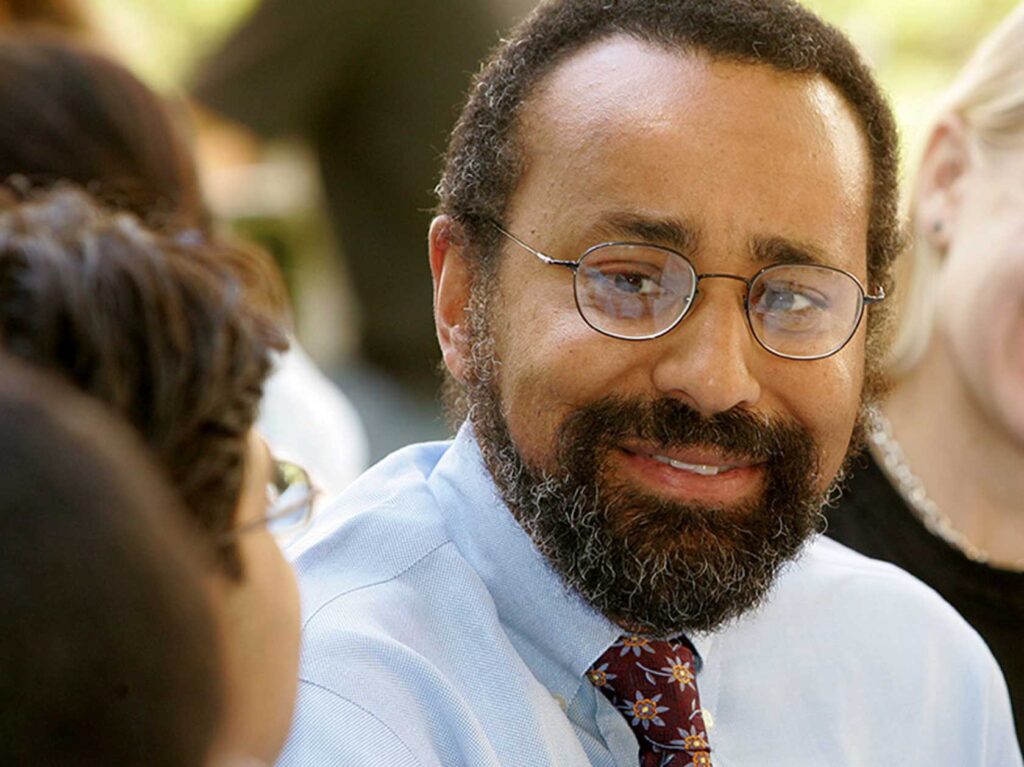
Christopher Fairfield Edley Jr., an adviser to three presidents and a leading civil rights expert who spent over two decades on the Harvard Law School faculty, died in California on May 10 at age 71 after complications from surgery.
After leaving Harvard in 2004, Edley served for nine years as an inspiring dean of the University of California Berkeley School of Law, where he continued to fight the erosion of affirmative action in academia and civil rights in general.
Edley, born in Boston while his father attended Harvard Law, was the school’s first second-generation Black graduate.
He took a leave of absence from law school to work on Jimmy Carter’s 1976 presidential campaign and joined the White House domestic policy staff after graduating in 1978 with a law degree and a master’s in public policy.
The affable, soft-spoken attorney joined Harvard’s law faculty after Carter’s 1980 defeat and negotiated between the worlds of politics and academics for the next three decades. His students along the way included Barack Obama.
“It was outside of class when he would come by my office to chat that I really got a sense of him,” said Edley to author David Remnick for the book “The Bridge — The Life and Rise of Barack Obama.”
“I claim to have been the first to use the phrase ‘preternatural calmness’ to describe him. That’s what’s so striking about him. Even as we would talk about career paths, he seemed so centered that, in combination with his evident intelligence, I just wanted to buy stock in him. I knew that the capital gains would be enormous.”
Edley served as domestic policy director in the losing presidential campaign of Massachusetts Gov. Michael S. Dukakis in 1988 and supported Bill Clinton’s successful run for the White House in 1992. He took a leave from Harvard to work under the former Arkansas governor in the Office of Management and Budget, where he oversaw five cabinet departments, 40 independent agencies and billions of budget dollars.
But his most prominent role in the Clinton White House was leading a broad review of affirmative action under the cautious “mend it, don’t end it” approach taken by the triangulating president.
“Chris Edley had a brilliant mind and a kind, good heart that he put to use to build a better, fairer, more just America,” said Clinton in a statement. “From his groundbreaking academic career to his service in multiple key roles in my administration, he always believed that law and policy are ultimately about people.”
After his return to Harvard in the late 1990s, he joined with colleague Gary Orfield to form the Civil Rights Project to combat growing threats of eliminating affirmative action in college admissions.
He was among a coterie of prominent Black academics who foresaw challenges to the policy signaled by the elevation of figures like Associate Supreme Court Justice Clarence Thomas, whose nomination he testified against in front of the Senate Judiciary Committee, to top judicial positions.
Edley continued his role as a top policy adviser to Democratic candidates for the White House Al Gore, Howard Dean and his former law student Barack Obama. He was valued for smart, fact-based policy defenses of classic liberal positions on family support, disability rights, food stamps and education.
At Berkeley, Edley proved one of the activist deans in the history of the public law institution, expanding the school’s physical footprint, introducing public service grants for students and creating new research centers. During his tenure, he co-chaired the congressionally chartered National Commission on Education Excellence and Equity.
Edley served on the Obama transition team but resisted entreaties to join the administration, opting instead to return to Berkeley and the clamorous political environment of California.
“This was ground zero for the opportunity struggle that defines the civil rights agenda,” he told the New York Times. “The challenges in education, health care, immigration, the criminal justice system, here in California, capture what the battle for racial and ethnic justice is today.”
After retiring from the law school to treat prostate cancer, he returned to campus in 2021 as interim dean of UC Berkeley’s School of Education, helping to formalize the school’s undergraduate major while serving as a champion of early childhood education, equity-based leadership and online education.
Edley, whose father headed the United Negro College Fund, grew up in New Rochelle, N.Y., and Philadelphia. He attended Swarthmore College near Philadelphia before enrolling at Harvard Law School. His mother, Zaida Coles, was an actress and speech therapist.
He was twice divorced and is survived by his third wife, Maria Echeveste, whom he met when she served as deputy chief of staff to President Clinton. He is also survived by his son from his second marriage, Chrisopher Edley III; and two children with Echeveste, Elias and Zara.






